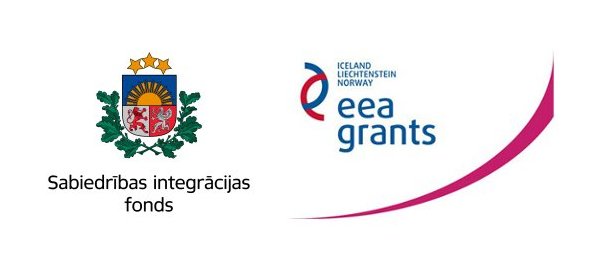Projekts „Sabiedriskās līdzdalības resursi lauku teritoriju attīstībā” tika ieviests no 2013. gada 5. jūlija līdz 2015. gada 31. decembrim.
Tā vispārējais mērķis bija:
„ Palielināt NVO sektora nozīmi lauku teritoriju attīstībā, tā kapacitāti lēmumu pieņemšanas procesos un lomu vietējās kopienas dzīves kvalitātes uzlabošanā.”
Šī mērķa sasniegšanai izraudzītās metodes tika piemērotas ieviešanas reģiona situācijai, aktivizējot nelielas lauku apdzīvoto vietu organizācijas.
Projekta ietvaros ir sasniegti visi plānotie rezultāti, un tie ir šādi:
- Izveidota Augšzemes lauku NVO apvienība, tajā ir iesaistījušās 18 NVO un 3 zemnieku saimniecības. Kopš dibināšanas brīža NVO apvienība jau ir ieviesusi 3 projektus, kas skar visa reģiona sektora intereses;
- Ir izstrādāts NVO sektora ilgtermiņa attīstības plāns, kā arī nodrošināti visi sektoram adresētie pasākumi: sagatavotas un izsūtītas 15 ziņu lapas, notikuši 3 pieredzes apmaiņas braucieni; notikuši 3 NVO forumi; sniegtas 34 konsultācijas;
- Nodrošināta interešu pārstāvība pašvaldībā un LP Sēlija, sniedzot ierosinājumus saistošo noteikumu izstrādē un nodrošinot aktīvu dalību LP Sēlija organizētajos pasākumos. Šai reģiona līmeņa organizācijā no jauna iesaistījušās 4 organizācijas;
- Īstenotas visas plānotās finansējuma piesaistes aktivitātes, finanšu avotu dažādošana iesniedzējorganizācijā – izstrādāts saimnieciskās darbības plāns, izstrādāts 21 projekta pieteikums. Ieņēmumi no saimnieciskās darbības 2015.g gadā salīdzinot ar 2014. Gadu, pieauguši par 200%.
- Biedru sastāva dažādošanas un brīvprātīgo piesaistes pasākumi iesniedzējorganizācijā ir sasnieguši mērķi, darba programmas norises laikā biedrībā ir iesaistījušie 6 jauni vīrieši, un 4 zemnieku saimniecības iestājušās kā dalīborganizācijas;
Projekta finansiālā ilgtspēja tiek nodrošināta gan izstrādājot jaunus projektu pieteikumus, gan arī organizējot saimniecisko darbību. Rezultātu uzturēšanai tiek izmantoti pieteicējorganizācijas un iesaistīto organizāciju resursi – telpas, kuru uzturēšanas izmaksas organizācijas spēj nodrošināt no saviem līdzekļiem un cilvēkresursi, kas pamatā tiek nodrošināti brīvprātīgā darba veidā. Būtisks ilgtspējas aspekts – noslēgts funkciju deleģējuma līgums ar pašvaldību, kas paredz komunālo maksājumu segšanu organizācijai. Ne mazāk svarīgu ilgtspējas aspektu nodrošina biedrības saimnieciskās darbības attīstība.
Organizatorisko ilgtspēju nodrošina projekta laikā izveidotā Jēkabpils novada NVO apvienība, kas ir ilgtspējīga organizatoriskā struktūra. Projekta ietvaros tika izstrādāts sektora Ilgtermiņa attīstības plāns, kā arī realizēti atbalsta pasākumi, kas ļauj prognozēt institucionālo ilgtspēju pēc programmas noslēguma.
Uzskatāms, ka projekts būtiski ir ietekmējis pilsoniskās sabiedrības attīstību tā ieviešanas reģionā: – ir nodrošināta vienota NVO sektora viedokļa pārstāvība gan pašvaldības, gan reģionālās organizācijas līmenī; iesniedzējorganizācijas biedru skaits ir palielinājies par 6 cilvēkiem, kas visi pārstāv plānoto mērķa grupu – vīriešus darbaspējas vecumā. Regulāras brīvprātīgā darba aktivitātes ir nodrošinājušas vietējās kopienas pilsoniskās apziņas pieaugumu un spēju regulāri, koordinēti darboties dzīves kvalitātes uzlabošanā.
Projekta mērķa grupas bija tieši reģiona NVO un Kaldabruņas ciemata iedzīvotāji – vietējā kopiena. Abas minētās mērķa grupas tika aktīvi iesaistītas projekta norisēs, gan izsūtot informāciju elektroniski, gan uzrunājot personīgi katru potenciālo projekta dalībnieku. Mērķa grupas skaits bija atbilstošs projektā plānotajam, atsevišķās aktivitātēs tas tika pārsniegts. Uzskatām, ka mērķa grupas būtiskākie ieguvumi ir:
- Iespējas definēt, paust un aizstāvēt vienotu viedokli;
- Iespējas darboties apvienībā, realizējot lielāka apjoma pasākumus, projektus, kas skar reģiona NVO sektora intereses;
- Zināšanas un pieredze gan finansējuma piesaistes jautājumos, gan kopienas vienojošu pasākumu organizācijā, gan kopienas veidošanas pamatjautājumos;
- Kaldabruņas ciema vietējās kopienas gadījumā – iespējas reāli un pozitīvi ietekmēt dzīves kvalitāti kopienā, panākt pozitīvas izmaiņas, gan darbojoties pašiem, gan panākot atbilstošas rīcības no vietējās pašvaldības puses.
Projektu finansiāli atbalsta Islande, Lihtenšteina un Norvēģija. Programmu finansē EEZ finanšu instruments un Latvijas valsts
The project “The resources of civil participation in the development of rural territories” was implemented from July 05, 2013 till December 31, 2015.
Its general aim was:
“To increase the role of the NGO sector in the development of the rural terrritories, the sector`s capacity in the process of making decisions and its role in increasing the quality of life in the local communities.
The selected methods for reaching the aim were adjusted to the situation of the region of the project implementation by activating the small organizations of the rural territories.
All the planned results have been achieved and they are the following:
- The Association of Rural NGOs Augszeme was formed with 18 NGOs and 3 farms as its members. Since its foundation the association has implemented 3 projects concerning the sector`s interests in the whole region.
- A long-term development plan for the NGO sector was worked out, as well as all the corresponding activities were realized: 15 Newsletters were prepared and sent out; 3 experience exchange trips were organized; 3 NGO forums were held, 34 consultations were given.
- The representation of the NGO sector interests were insured in the self-government and the NGO “Rural Partnership Selija” by means of giving suggestions in the process of making the binding rules and by an active participation in the activities organized by “RP Selija”. 4 new organizations have joined this regional level organization.
- All the planned activities for raising finances and the differenciation of the financial resources of the applicant organization have been implemented – the business plan was made, 21 project application was handed in. The income from the business activities in 2015 has increased by 2005 as compared to that in 2014.
- The activities for diversification of the membership and the involvement of new volunteers into the applicant organization have reached the planned aim – during the implemetation of the worked-out plan 6 young men have been involved and 4 farms have joined the organization.
The financial sustainability of the project is ensured both by making new project applications and organizing business activities. For mantaining the achieved results the applicant organization and its partner organizations make use of their own resources – the premises, the costs being covered by the organizations themselves, and the human resources, being mainly ensured by voluntary work. A notable sustainability aspect – a function delegation treaty with the self-government was signed ensuring that all the organization`s household costs are covered by the municipality. Not of a minor importance for sustainability is also the growth of the organization`s business activities.
The organizational sustainability is ensured by the Association of Jekabpils novads NGOs that was founded during the project as long as now it has become a sustainable organizational structure. Within the project a long-term development plan for the NGO sector was worked out and activities were arranged to support this plan, thus making it possible to forsee its sustainability after the programm is over.
It is obvious that the project considerably favoured the development of civic society in the region of its implementation: – representation of a unanimous NGO sector opinion is ensured both on a municipality level and the level of a regional organization; the applicant organization`s membership has increased by 6 members, all of them representing the planned target group – men at employment age. The regular voluntary activities have ensured growth of the civic consciousness of the local community and its ability to participate regularly and accordingly in increasing the quality of life.
The project target group were the NGOs of the region and the inhabitants of the village of Kaldabruna – the local community. Both target groups were actively involved in the project activities both by sending out information digitally and personally addressing each pontional project participant. The number of the target group corresponded to the one planned in the project and it was even surpassed in some of the activities. The essential achievements of the target group are the following:
- Possibilities to define, voice and defend a unanimous opinion.
- Possibilities to participate in an association that organizes activities on a larger scale, projects on the interests of the regional level NGO sector.
- Knowledge and experience both of the issues of raising finances, arranging
activities for strengthening the unity of the community and the basic issues of developing the community.
- In the case of the local community of the village of Kaldabruna – possibilities to make a real and positive influence on the community`s quality of life and to gain positive changes by means of both one`s own participation and securing a desirable behaviour of the local municipality.

